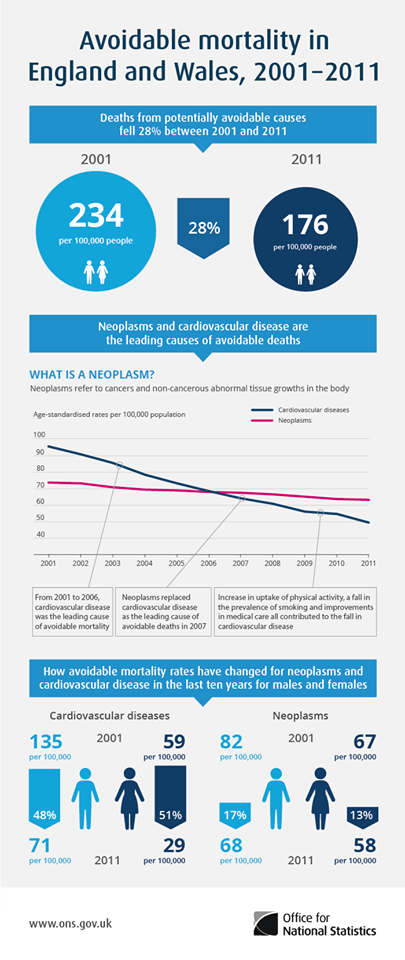|
Obesity In Saudi Arabia
{{Saudi Arabia stub ...
Obesity in Saudi Arabia is a growing health concern, with health officials stating that it is one of the country's leading causes of preventable deaths. According to ''Forbes'', Saudi Arabia ranks 29 on a 2007 list of the fattest countries with a percentage of 68.3% of its citizens being overweight ( BMI≥25). Compounding the problem, according to a presentation at the 3rd International Obesity Conference in February 2014, is that obesity-related surgeries are not covered under Saudi healthcare. See also * Epidemiology of obesity References Health in Saudi Arabia Saudi Arabia Saudi Arabia, officially the Kingdom of Saudi Arabia (KSA), is a country in Western Asia. It covers the bulk of the Arabian Peninsula, and has a land area of about , making it the fifth-largest country in Asia, the second-largest in the A ... [...More Info...] [...Related Items...] OR: [Wikipedia] [Google] [Baidu] |
Saudi Arabia
Saudi Arabia, officially the Kingdom of Saudi Arabia (KSA), is a country in Western Asia. It covers the bulk of the Arabian Peninsula, and has a land area of about , making it the fifth-largest country in Asia, the second-largest in the Arab world, and the largest in Western Asia and the Middle East. It is bordered by the Red Sea to the west; Jordan, Iraq, and Kuwait to the north; the Persian Gulf, Qatar and the United Arab Emirates to the east; Oman to the southeast; and Yemen to the south. Bahrain is an island country off the east coast. The Gulf of Aqaba in the northwest separates Saudi Arabia from Egypt. Saudi Arabia is the only country with a coastline along both the Red Sea and the Persian Gulf, and most of its terrain consists of arid desert, lowland, steppe, and mountains. Its capital and largest city is Riyadh. The country is home to Mecca and Medina, the two holiest cities in Islam. Pre-Islamic Arabia, the territory that constitutes modern-day Saudi Ar ... [...More Info...] [...Related Items...] OR: [Wikipedia] [Google] [Baidu] |
Causes Of Preventable Death
Preventable causes of death are causes of death related to risk factors which could have been avoided. The World Health Organization has traditionally classified death according to the primary type of disease or injury. However, causes of death may also be classified in terms of preventable risk factors—such as smoking, unhealthy diet, sexual behavior, and reckless driving—which contribute to a number of different diseases. Such risk factors are usually not recorded directly on death certificates, although they are acknowledged in medical reports. Worldwide It is estimated that of the roughly 150,000 people who die each day across the globe, about two thirds—100,000 per day—die of age-related causes. In industrialized nations the proportion is much higher, reaching 90 percent. Thus, albeit indirectly, biological aging (senescence) is by far the leading cause of death. Whether senescence as a biological process itself can be slowed, halted, or even reversed is a subject of ... [...More Info...] [...Related Items...] OR: [Wikipedia] [Google] [Baidu] |
Forbes
''Forbes'' () is an American business magazine owned by Integrated Whale Media Investments and the Forbes family. Published eight times a year, it features articles on finance, industry, investing, and marketing topics. ''Forbes'' also reports on related subjects such as technology, communications, science, politics, and law. It is based in Jersey City, New Jersey. Competitors in the national business magazine category include ''Fortune'' and ''Bloomberg Businessweek''. ''Forbes'' has an international edition in Asia as well as editions produced under license in 27 countries and regions worldwide. The magazine is well known for its lists and rankings, including of the richest Americans (the Forbes 400), of the America's Wealthiest Celebrities, of the world's top companies (the Forbes Global 2000), Forbes list of the World's Most Powerful People, and The World's Billionaires. The motto of ''Forbes'' magazine is "Change the World". Its chair and editor-in-chief is Steve Fo ... [...More Info...] [...Related Items...] OR: [Wikipedia] [Google] [Baidu] |
List Of Countries By BMI ...
The data for international body mass indexes was published by the World Health Organization. The list below refers to year 2014. Data * indicates "Health in COUNTRY or TERRITORY" links. See also * List of countries by obesity rate References {{DEFAULTSORT:List Of Countries By Mean BMI Body mass index Obesity Body Mass Index Body Mass Index Body mass index (BMI) is a value derived from the mass (weight) and height of a person. The BMI is defined as the body mass divided by the square of the body height, and is expressed in units of kg/m2, resulting from mass in kilograms and he ... [...More Info...] [...Related Items...] OR: [Wikipedia] [Google] [Baidu] |
Body Mass Index
Body mass index (BMI) is a value derived from the mass (weight) and height of a person. The BMI is defined as the body mass divided by the square of the body height, and is expressed in units of kg/m2, resulting from mass in kilograms and height in metres. The BMI may be determined using a table or chart which displays BMI as a function of mass and height using contour lines or colours for different BMI categories, and which may use other units of measurement (converted to metric units for the calculation). The BMI is a convenient rule of thumb used to broadly categorize a person as ''underweight'', ''normal weight'', ''overweight'', or ''obese'' based on tissue mass (muscle, fat, and bone) and height. Major adult BMI classifications are underweight (under 18.5 kg/m2), normal weight (18.5 to 24.9), overweight (25 to 29.9), and obese (30 or more). When used to predict an individual's health, rather than as a statistical measurement for groups, the BMI has limitations ... [...More Info...] [...Related Items...] OR: [Wikipedia] [Google] [Baidu] |
Saudi Healthcare
Health care in Saudi Arabia is a national health care system in which the government provides free universal healthcare coverage through a number of government agencies. There is also a growing role and increased participation from the private sector in the provision of health care services. Saudi Arabia has been ranked among the 26 best countries in providing high quality healthcare. Ministry of Health The Ministry of Health is the major government agency entrusted with the provision of preventive, curative and rehabilitative health care for the Kingdom's population. The Ministry provides primary health care services through a network of healthcare centers (comprising 1,925 centers)Health Indicators, 2006 Ministry of Health, Department of Statistics, throughout the kingdom. It also adopts the referral system which p ... [...More Info...] [...Related Items...] OR: [Wikipedia] [Google] [Baidu] |
Epidemiology Of Obesity
Obesity has been observed throughout human history. Many early depictions of the human form in art and sculpture appear obese. However, it was not until the 20th century that obesity became common — so much so that, in 1997, the World Health Organization (WHO) formally recognized obesity as a global epidemic and estimated that the worldwide prevalence of obesity has nearly tripled since 1975. Obesity is defined as having a body mass index (BMI) greater than or equal to 30 kg/m2, and in June 2013 the American Medical Association classified it as a disease. In countries of the Organisation for Economic Co-operation and Development (OECD), one child out of five is overweight or obese. Once considered a problem only of high-income countries, obesity rates are rising worldwide. Globally, there are now more people who are obese than who are underweight, a trend observed in every region over the world except parts of sub-Saharan Africa and Asia. In 2013, an estimated 2.1 bill ... [...More Info...] [...Related Items...] OR: [Wikipedia] [Google] [Baidu] |
Health In Saudi Arabia
Health in Saudi Arabia refers to the overall health of the population of Saudi Arabia. Government prioritization of preventive healthcare and environmental health began in 1925 following the establishment a public health department. The decision to create it came after a royal decree from King Abdul Aziz Al-Saud. The government announced plans to increase taxes on soft drinks and tobacco in December 2015. Obesity Across the whole population from 1995–2000, 36.9% were overweight and 35.6% were obese. Rates were high amongst children aged 5–17, as 16.7% of boys and 19.4% of girls were overweight. By 2006, 52% of men, 66% of women, 18% of teenagers, and 15% of preschoolers were overweight or obese. In 2008, 17.99% of deaths were caused by cardiovascular disease. During this year, 95% of the 424,968 total appointments to diabetics clinics were made for Saudi citizens. 55% of these diabetic citizens were women and 44% were men. The latest national prevalence for childhood obesi ... [...More Info...] [...Related Items...] OR: [Wikipedia] [Google] [Baidu] |



